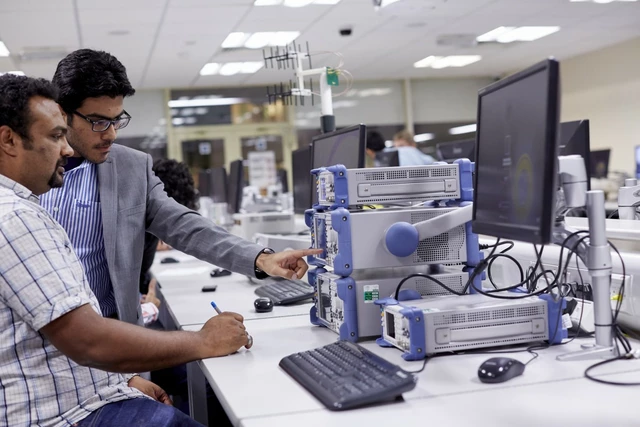Technology – Your Quick Guide to Today’s Hottest Trends
Tech moves fast. One day you’re hearing about self‑driving cars, the next you’re reading about quantum chips that could solve problems in seconds. If you feel left behind, you’re not alone – but you don’t have to be. This page pulls together the most talked‑about tech stories and gives you simple ways to keep up without drowning in jargon.
AI: The Engine Driving Change
Artificial Intelligence isn’t a futuristic buzzword anymore; it’s inside the apps you use daily. From recommendation engines that suggest the next binge‑watch show to AI‑powered chatbots that answer your banking queries, the impact is everywhere. The real power of AI lies in its ability to analyze massive data sets and spot patterns humans miss. That’s why industries from healthcare to logistics are racing to adopt AI – it saves time, cuts costs, and opens doors to services we couldn’t imagine a decade ago.
If you’re wondering how to stay in the loop, sign up for newsletters from sites like TechCrunch or The Verge. A quick daily scan of their headlines will tell you which AI models are trending, which startups just raised funding, and which big corporations are rolling out new features.
Quantum Computing: The Next Frontier
Quantum computers process information in qubits, which can be both 0 and 1 at the same time. This weird property makes them unbelievably fast for certain calculations – think drug discovery, climate modeling, and cracking encryption. Some experts even talk about a “technological singularity,” a point where quantum power could outpace human intelligence. While we’re still in the early testing phase, companies like IBM and Google are already showing prototypes that solve problems impossible for classical computers.
To get a feel for quantum breakthroughs, follow blogs that explain the science in plain English. Many researchers now publish short video summaries that break down complex concepts into everyday analogies – perfect for a quick coffee‑break learning session.
Beyond AI and quantum, there’s a constant debate: computer science versus information technology. If you love digging into algorithms, theory, and building software from scratch, computer science is the playground. If you prefer setting up networks, troubleshooting user issues, and delivering tech solutions to real‑world problems, information technology might suit you better. Both paths lead to rewarding careers; the choice comes down to where your curiosity lives.
Staying updated isn’t about reading every article that pops up. Pick a few trusted sources, set up Google Alerts for keywords like “AI breakthrough” or “quantum chip,” and allocate 15 minutes each morning to skim headlines. Podcasts and YouTube channels also pack a lot of info into short episodes – ideal for commutes.
Finally, remember that technology isn’t just about gadgets; it’s about how those gadgets change our lives. Whether it’s an IPO that signals where investors see the next big tech wave, or a credit union leveraging AI to offer better loan rates, every development has a ripple effect. Keep asking yourself: how does this affect me, my work, or my community? That simple question turns a news dump into useful insight.
So, whether you’re a student picking a major, a professional tracking market trends, or just a curious mind, the tech world has something for you. Dive into the articles, try out a new tool, and watch how today’s innovations become tomorrow’s everyday reality.
How is science and technology beneficial to entertainment?
Well, folks, let's talk about the magic combo of science, technology, and entertainment. It's like a sandwich, but instead of ham and cheese, it's full of virtual reality headsets and streaming platforms. Seriously though, these advancements have made entertainment more accessible, interactive, and convenient than ever before. It's like being at a rock concert, in your pajamas, at home! So, let's tip our hats to science and technology for transforming entertainment into a spectacular, on-demand, comfy couch experience.
Will science and technology fail in the future?
In my exploration of whether science and technology could fail in the future, it's clear that this is a complex issue. While our reliance on technology is increasing, so too are the risks, including potential system failures or misuse. However, it's important to remember that the essence of science is learning from mistakes and improving. So, despite potential setbacks, the inherent nature of science and technology is to evolve, not fail. Ultimately, it's our responsibility to guide this development in a beneficial direction.
Has technology added new jobs to your industry?
Technology has had a huge impact on the job market, both creating and eliminating jobs. In many industries, technology has created new jobs that require a deeper understanding of the digital space. These jobs often require a combination of technical skills and human interaction, such as software developers and customer service representatives. At the same time, technology has also caused job losses in certain sectors, including manual labor and administrative roles. The impact of technology on jobs will likely continue in the future, with both job losses and growth in certain areas.
Technology Connection?
This article examines the impact that technology has had on the way people communicate with one another in today's society. It looks at how technology has changed the way people communicate, from using phones to texting, social media, and other forms of communication. It also discusses the potential risks associated with technology, such as cyberbullying, privacy issues, and the potential for addiction. In conclusion, the article suggests that although technology has provided us with many benefits, it is important to remember to use it responsibly and to be aware of the potential risks.








